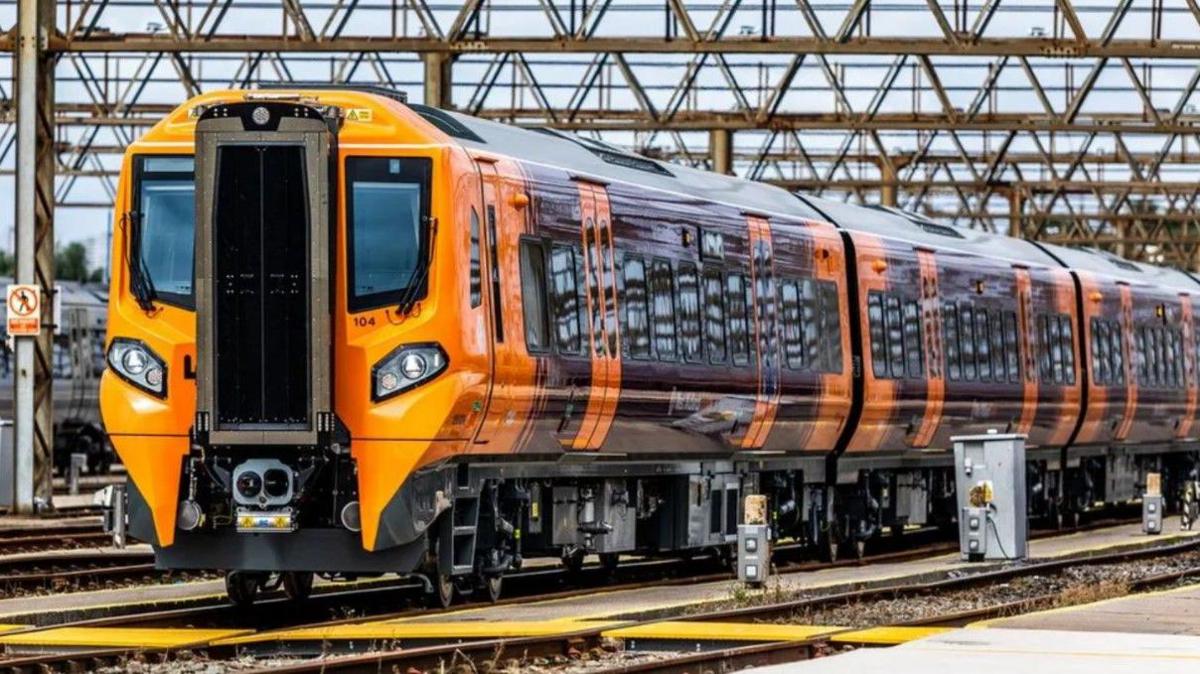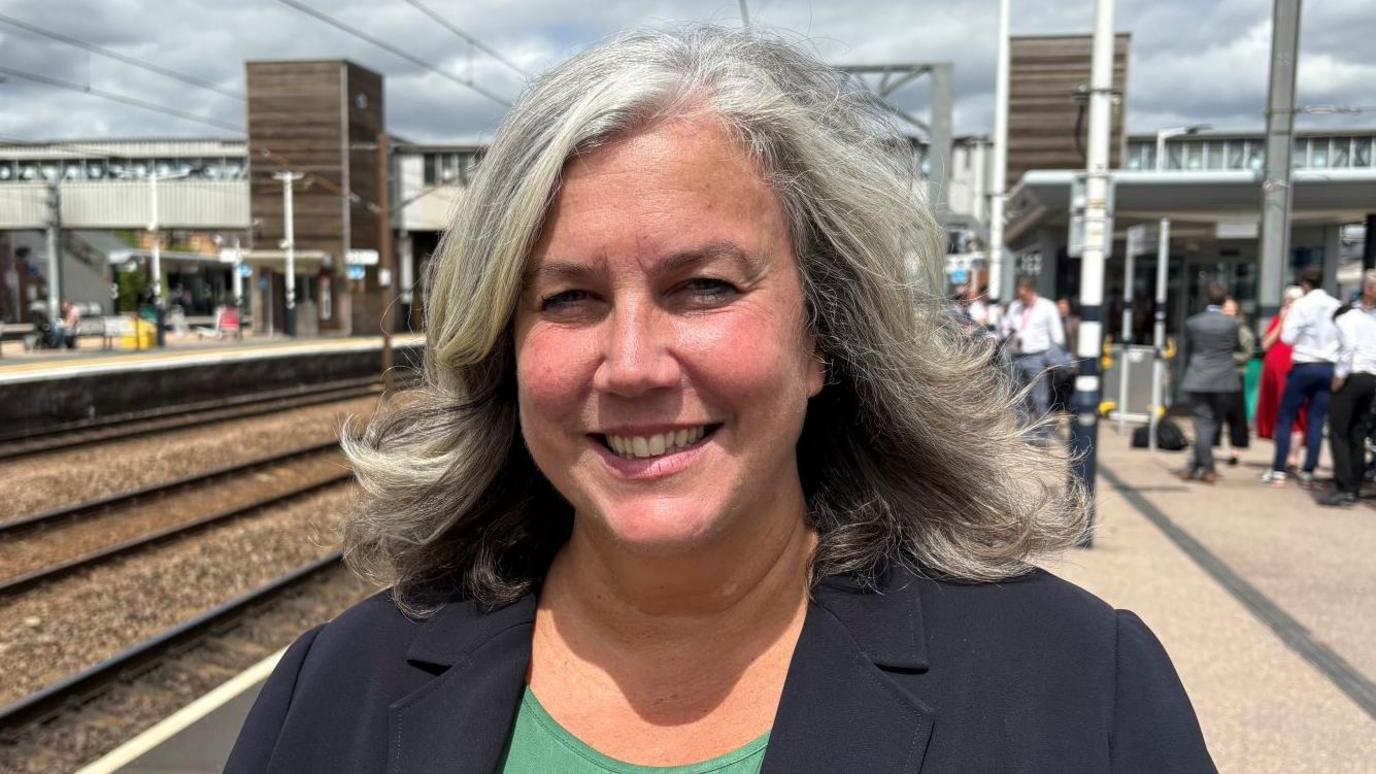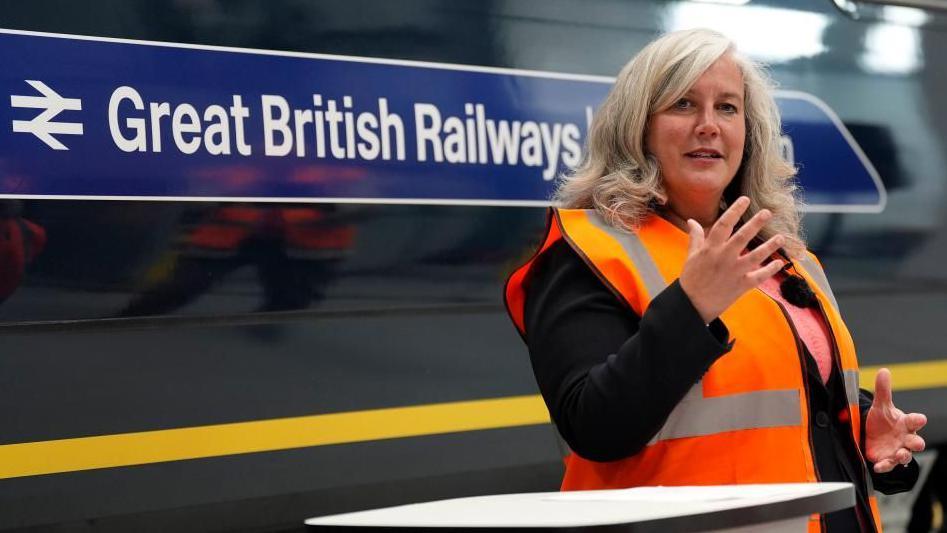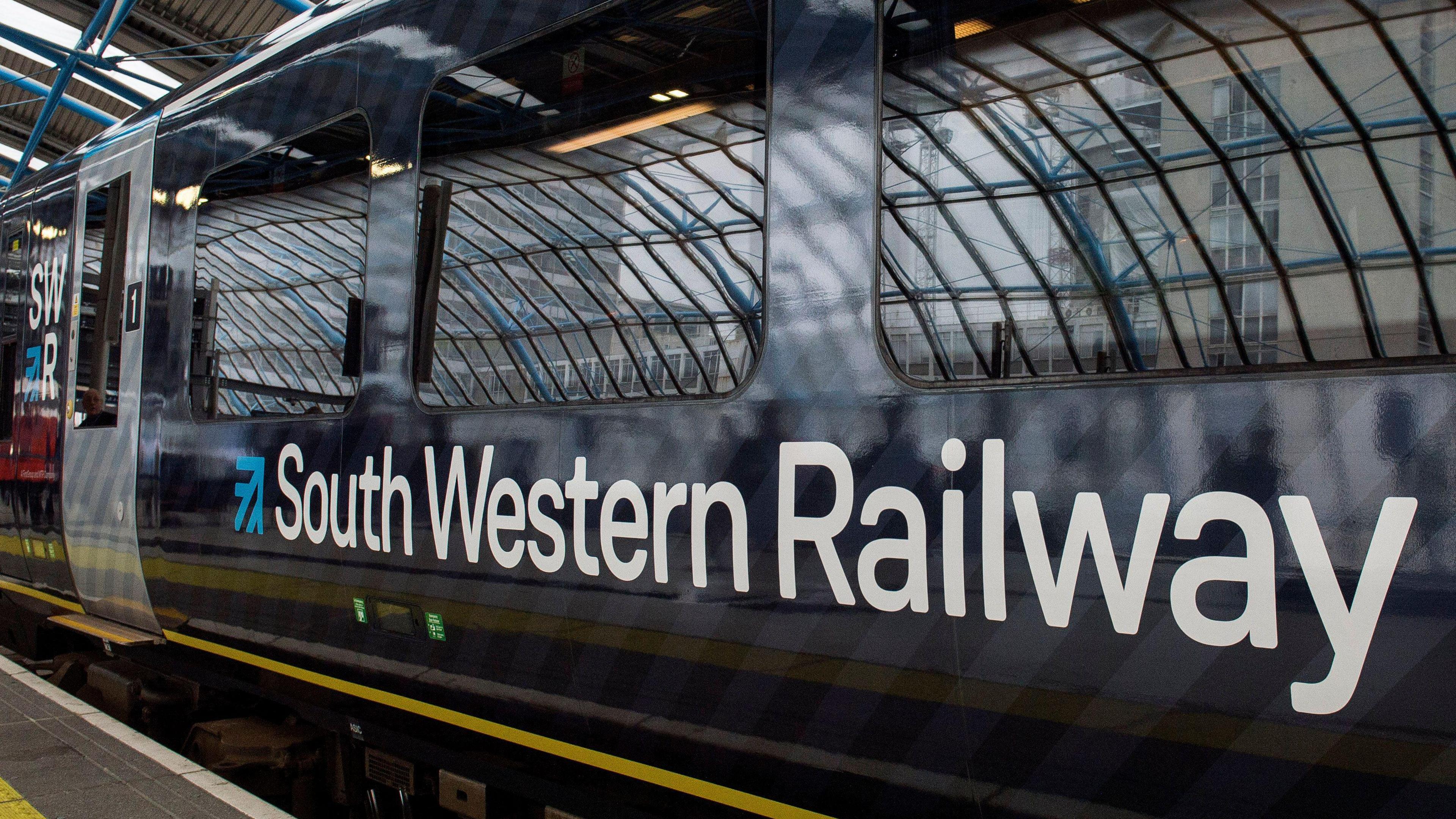Trains transfer to public ownership in West Midlands

The company says passengers can be assured the change will not affect its train services, timetables or stations
- Published
Rail services operated by West Midlands Trains will transfer to public ownership in February, confirms the company.
It will become part of Great British Railways, set up by the government to oversee the rail system in England, Wales and Scotland, when its current contract expires.
WMT, which operates services under the West Midlands Railway and London Northwestern Railway brands, said it was "committed to ensuring a smooth transition" to public ownership.
A spokesperson added that customers could be "assured" the change would not impact its train services, timetables or stations and that all "ticket validities and conditions of carriage" were unaffected.
The Department for Transport confirmed on Monday that WMT would transfer to public ownership on 1 February next year.
Since the start of its franchise in 2017, more than 100 new trains had been introduced onto the network, which stretches from Liverpool to London via the West Midlands, the company claimed.
Managing director Ian McConnell said he was "extremely proud of what we have achieved under this franchise, delivering a £1bn investment in two new train fleets".
Ministers have been allowed to take rail companies back into public ownership under the Passenger Railway Services (Public Ownership) Act 2024, passed by Labour in November.
The government hoped nationalisation of all services in Britain would bring savings of up to £150m while also reducing delays and cancellations.
Transport Secretary Heidi Alexander said passengers had been suffering "spiralling costs, fragmentation and waste".
Shadow rail minister Jerome Mayhew said he feared nationalisation would end up costing taxpayers more money in increased costs for leasing rolling stock.
He said the government was "risking" successful operations for "ideological reasons".
Get in touch
Tell us which stories we should cover in Birmingham and the Black Country
Follow BBC Birmingham on BBC Sounds, Facebook, external, X, external and Instagram, external.
Related topics
- Published20 July

- Published25 May

- Published4 December 2024
